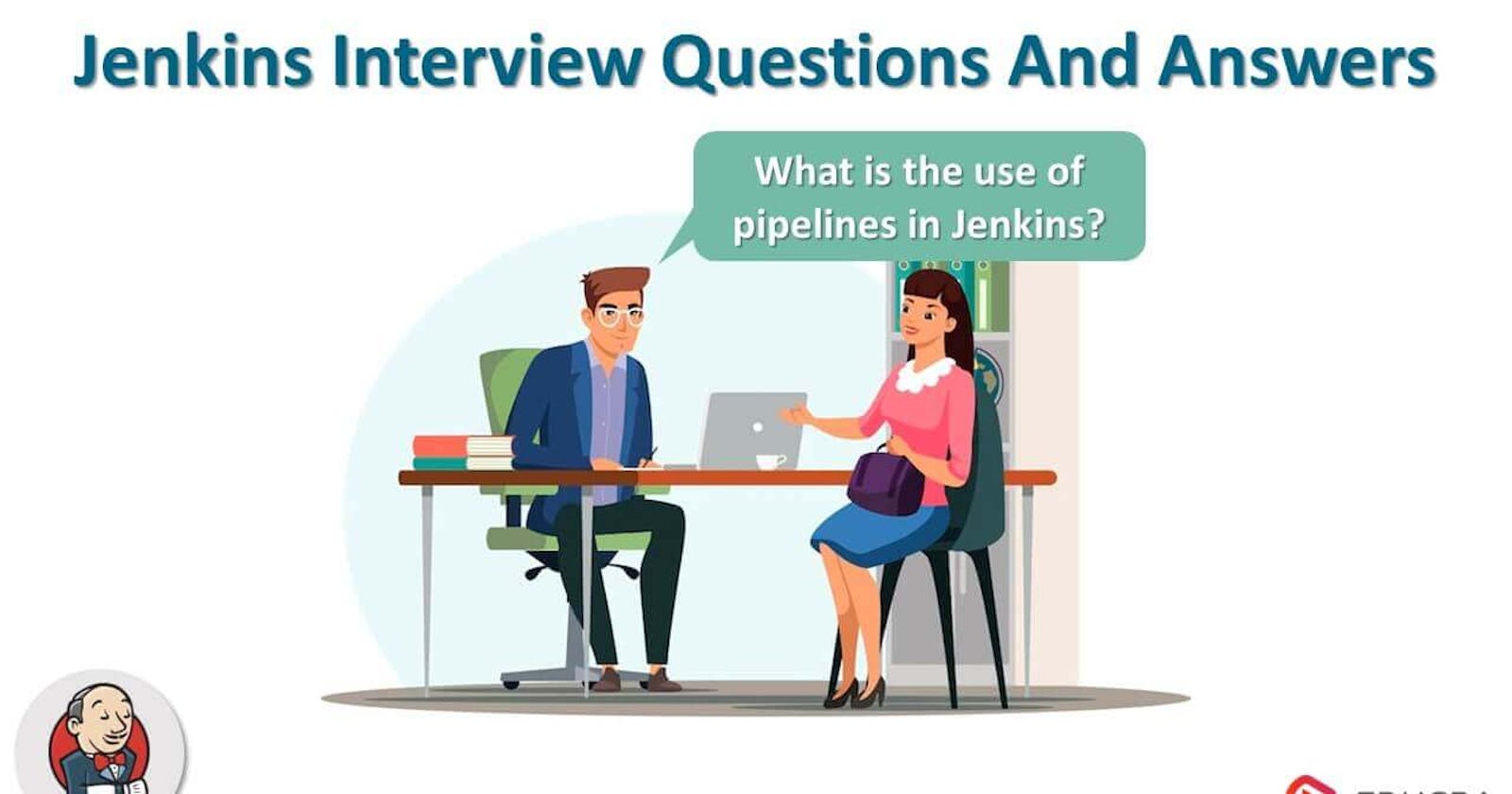This is#90DaysofDevopschallenge under the guidance of Shubham Londhe sir.
Introduction:
In the dynamic realm of DevOps, Jenkins stands as a pivotal tool for automating software delivery pipelines. To excel in Jenkins interviews, it's crucial to grasp fundamental concepts and practices. Here, we explore 15 essential Jenkins interview questions along with detailed answers to equip you for success.
1. What’s the difference between continuous integration, continuous delivery, and continuous deployment?
Continuous Integration (CI) involves merging code changes into a shared repository and running automated tests.
Continuous Delivery (CD) ensures that code changes can be deployed to production environments safely and quickly.
Continuous Deployment automatically deploys code changes to production after passing through the CI/CD pipeline.
2. What is meant by CI-CD?
- CI/CD refers to the combined practices of Continuous Integration (CI) and Continuous Delivery (CD). It involves automating the software delivery process from code changes to production deployment.
3. What is Jenkins Pipeline?
- Jenkins Pipeline is a suite of plugins that allows defining complex workflows as code. It enables versioning, reviewing, and orchestrating delivery pipelines seamlessly.
4. How do you configure a job in Jenkins?
- To configure a job in Jenkins, navigate to the dashboard, create a new item, specify the job type, and configure settings such as source code management, build triggers, and post-build actions.
5. Where do you find errors in Jenkins?
- Errors in Jenkins can be found in the build console output, build history, and system logs, providing detailed information about build steps and encountered issues.
6. In Jenkins, how can you find log files?
- Log files in Jenkins reside in the Jenkins home directory under the "logs" subdirectory. Additionally, job-specific build logs can be accessed from the job's build history.
7. Why do we use pipelines in Jenkins?
- Jenkins pipelines enable defining, versioning, and visualizing complex workflows as code. They offer flexibility, scalability, and integration with other tools for advanced automation.
8. Is only Jenkins enough for automation?
- While Jenkins is a powerful automation tool, additional tools like Ansible, Puppet, or Terraform may be required based on project requirements for comprehensive automation.
9. How will you handle secrets in Jenkins?
- Secrets in Jenkins are managed using credentials and plugins like the Jenkins Credentials Plugin, securely storing and accessing sensitive information such as passwords and API tokens.
10. Explain the stages in a CI-CD setup.
- CI-CD setups typically include stages like / code commit, build, test, deploy to staging, and deploy to production. Each stage ensures code quality and progression through the pipeline.
11. Name some popular Jenkins plugins.
- Popular Jenkins plugins include the Pipeline plugin, Git plugin, Docker plugin, AWS Credentials plugin, and SonarQube plugin, enhancing Jenkins' capabilities for diverse use cases.
12. What is Jenkins' role in continuous deployment?
- Jenkins facilitates continuous deployment by automating the deployment process, ensuring that code changes are deployed to production environments seamlessly and reliably.
13. How do you create a continuous deployment pipeline in Jenkins?
- Continuous deployment pipelines in Jenkins are created by defining stages, integrating with version control systems, setting up automated tests, and configuring deployment actions to streamline the deployment process.
14. What are the benefits of CI/CD pipelines?
- CI/CD pipelines enhance software delivery by automating testing, reducing manual errors, accelerating feedback loops, and enabling rapid and reliable deployments.
15. How do you ensure secure access to Jenkins?
- Secure access to Jenkins is ensured by implementing authentication mechanisms, role-based access control, and integrating with identity providers for centralized user management and access control.
Conclusion:
These 15 essential Jenkins interview questions and answers provide a comprehensive understanding of Jenkins' role in modern software delivery pipelines. Mastering these concepts empowers DevOps engineers to excel in Jenkins interviews and contribute effectively to their organizations' automation initiatives.
If you liked what you read and found it helpful, please consider showing your support by following and giving a thumbs-up 👍 below.
Thanks for taking the time to read! Your feedback and support mean a lot. 💚
